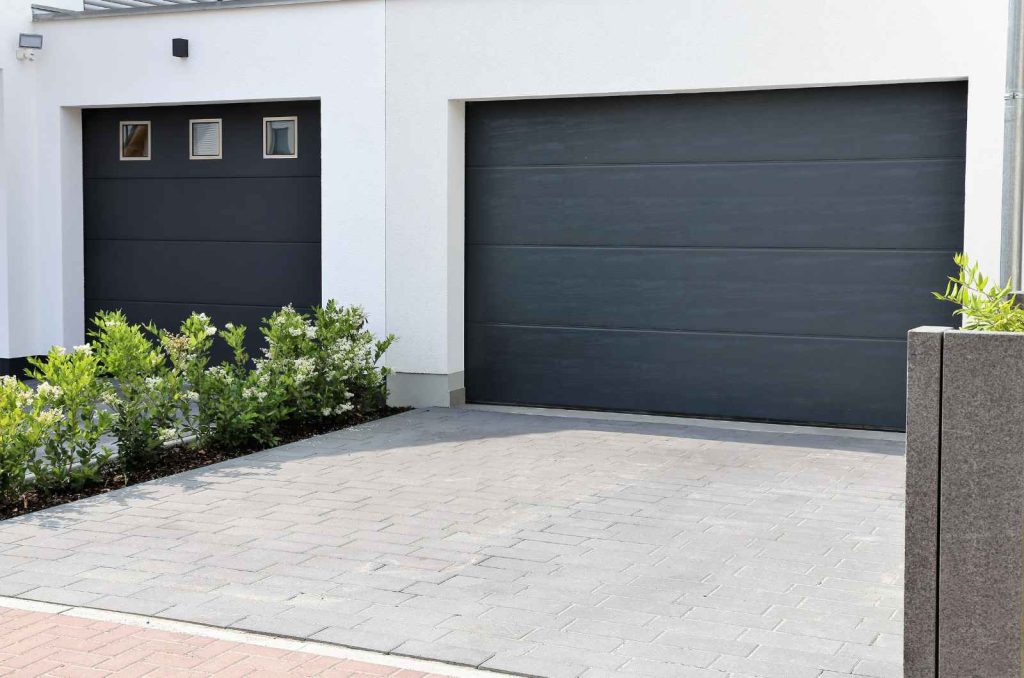
Maintaining your garage door springs is essential for the smooth operation and safety of your garage door. These springs bear the weight of the door, making it easy to open and close. Over time, garage door springs can wear out or break, leading to various problems. Recognizing the signs that indicate your garage door springs need replacement can help you address issues promptly and avoid potential hazards. In this article, we'll explore the key indicators that suggest it's time to replace your garage door springs and explain why timely replacement is crucial.
?What Happens When Your Garage Door Springs Fail
When your garage door springs fail, it can create significant issues for both the functionality and safety of your garage door. The springs bear the heavy lifting of the door, making it easier to open and close. If they break, your garage door might become inoperable, leaving your car stuck inside or outside.
A failed spring can also cause the door to close unexpectedly, which poses a serious safety risk. The door could slam shut with considerable force, potentially causing injury or damage. Additionally, a broken spring often leads to increased strain on the garage door opener. The opener is not designed to handle the full weight of the door without the assistance of the springs, which can result in motor burnout or other mechanical failures.
Addressing a spring failure promptly is essential to avoid these complications and ensure your garage door operates smoothly and safely.
?What Are the Signs Your Garage Door Springs Need Replacement
Recognizing the signs that your garage door springs need replacement is vital for ensuring the door's safety and functionality. Here are the key indicators to watch for:
Door Won't Open or Close
If your garage door suddenly stops opening or closing, it may indicate a broken spring. This is one of the most definitive signs that a replacement is necessary.
Slow or Jerky Movement
A garage door that moves slowly or exhibits jerky movements often suggests worn-out springs. The springs are likely struggling to support the door's weight.
Unusual Noises
Excessive squeaking, grinding, or popping sounds during operation can signal that the springs are under strain or damaged. If the opener seems to be working harder than usual, it could be due to failing springs.
Visible Damage
Inspect the springs for any visible signs of wear, such as gaps in the coils, rust, or cracks. Gaps indicate that the spring can no longer store sufficient energy to lift the door effectively.
Imbalanced Door
If one side of the garage door appears higher than the other when it is opened, this could indicate a problem with one of the springs. An imbalanced door can put extra strain on the opener and lead to further damage if not addressed.
Difficulty in Manual Operation
If you experience resistance when trying to manually open or close the door, it could indicate failing springs that require immediate attention.
Door Slams Shut
A garage door that slams down unexpectedly may have a broken torsion spring, posing a significant safety risk.
Rust or Corrosion
The presence of rust on the springs can weaken them over time and lead to breakage. If you notice significant rust, it’s advisable to replace the springs.
Increased Strain on Opener
If you hear your garage door opener straining more than usual while operating the door, it may be because the springs are not providing adequate support.
?Why is Timely Replacement Important
Timely replacement of your garage door springs is essential for several reasons. Firstly, it ensures the safety of everyone using the garage. A broken or weakened spring can lead to the door falling unexpectedly, posing a significant risk of injury. Secondly, replacing the springs on time helps in maintaining the smooth operation of your garage door. Worn-out springs can cause the door to operate erratically, leading to inconvenience and further damage to the door mechanisms.
Moreover, addressing spring issues promptly can save you money in the long run. Neglecting to replace failing springs can cause additional strain on other components, such as the garage door opener, leading to more extensive and costly repairs. Lastly, a well-functioning garage door enhances the overall security of your home, ensuring that your vehicles and other valuables are safely stored. Therefore, keeping your garage door springs in good condition is vital for safety, convenience, and cost-effectiveness.
Recognizing the signs that your garage door springs need replacement is vital for maintaining safety and functionality. By paying attention to the symptoms like unusual noises, slow movement, and visible damage, you can ensure timely repairs and avoid further complications. Always consult a professional for accurate diagnosis and replacement.
